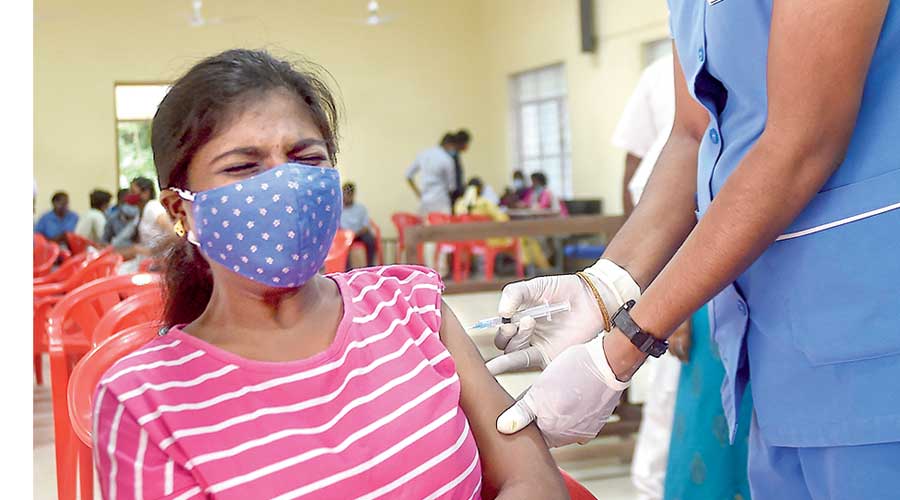Covid-19 is more likely to cause very rare neurological conditions than vaccination with the AstraZeneca or Pfizer preventives, according to a study led by the University of Oxford in the UK.
There have been reports of rare neurological complications associated with SARS-CoV-2 infection and Oxford-AstraZeneca or Pfizer-BioNTech COVID-19 vaccines.
The study, published in the journal Nature Medicine on Monday, analysed anonymised healthcare records of over 32 million people across England.
The researchers assessed the risk of developing neurological complications within 28 days of a first dose of either the AstraZeneca vaccine, known as Covishield in India, or Pfizer preventive, or within 28 days of testing positive for COVID-19.
They found an increased, but low, risk of the rare neurological conditions Guillain-Barre syndrome and Bell's palsy following a first dose of the AstraZeneca vaccine and an increased but low risk of hemorrhagic stroke following a first dose of the Pfizer vaccine.
However, infection with COVID-19 was associated with a greater risk of developing neurological complications than receiving either vaccine, according to the researchers.
"This analysis provides important information about which neurological conditions could be linked with COVID-19 vaccination or infection," said Professor Carol Coupland from the University of Nottingham, UK, one of the researchers involved in the study.
"Overall, the findings from this study show that the risks of hospital admission with nervous system complications associated with COVID-19 infection are greater than the risks associated with COVID-19 vaccinations," Coupland said.
The researchers found different risks for different types of neurological conditions depending on which vaccine people received.
However, these were substantially lower than the risks occurring in association with a positive COVID-19 PCR test.
"For example, we estimate 145 excess cases of Guillain-Barre syndrome per 10 million people in the 28 days after a positive SARS-CoV-2 test, compared to 38 per 10 million for those who received the AstraZeneca vaccine," said Martina Patone from the University of Oxford, and co-lead author of the study.
The researchers noted that the initial clinical trials of the vaccines were not large enough to be able to detect very rare adverse neurological events -- those that happen in less than 1 person out of 10,000.
The latest study was able to achieve this by looking at the real-world data from over 32 million healthcare records in England, they said.
The study used what is known as a "self-controlled case series (SCCS)" design.
An SCSS compares how often adverse events -- in this case neurological complications happen in different set windows of time.
The authors noted several limitations to the study, including that only risks associated with the first vaccine dose were examined.
Data on outcomes following second doses was limited at the time of this study since the vaccination programme in the UK is still underway.
The researchers could also not distinguish between different types of Guillain-Barre syndrome due to the way healthcare records were coded.










